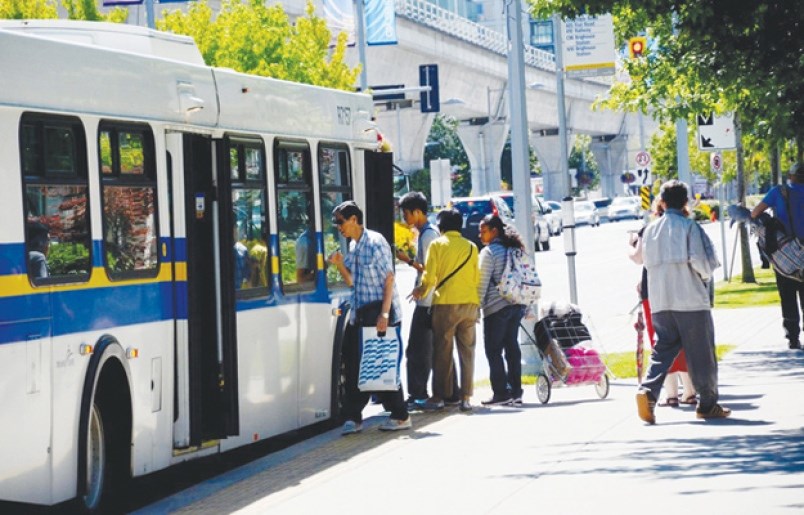The Mayor’s Council announced Friday it is dipping into various piggy banks to pay for its $2.5 billion share of $7.5 billion worth of transportation improvements under its Phase Two 10-year plan.
While Richmond residents will not directly reap the benefits of TransLink’s most significant Phase Two projects — having received the Canada Line nine years ago — they will be asked to pay for them via a small increase to property taxes, parking taxes and transit fares.
The vast majority of the money ($1.6 billion) will come from increased fare revenue from higher passenger volumes, according to a Mayor’s Council news release. TransLink will further leverage this added volume by adding a two per cent fare hike over two years beginning in 2020.
The rest of the projected revenue will come from a $5.50 increase in property taxes per average household beginning in 2019. As well, a 21 per cent parking tax charged on all parking spaces will increase to 24 per cent — this represents 15 cents more per hour for an average $5 per hour parking space.
Additionally, $300 to $600 will be charged on new residential units. This development charge will require legislative changes.
All this will add about $40 million in additional annual revenue.
What does this all mean?
With matching federal and provincial funds, TransLink will move ahead with (quoting the Mayor’s Council):
-Construction of Surrey-Newton-Guildford Light Rail
-Construction of Millennium Line Broadway Extension
-Significant upgrade of existing Expo-Millennium Lines to expand capacity to meet and improve the customer experience
-An eight per cent increase in bus service to address overcrowding, reduce wait times and bring bus services to communities with limited service
-Improvements to sidewalks, bikeways, multi-use pathways and roadways.
One of the most significant improvements in Richmond will be a planned B-line from City Centre to Burnaby’s Metrotown.



